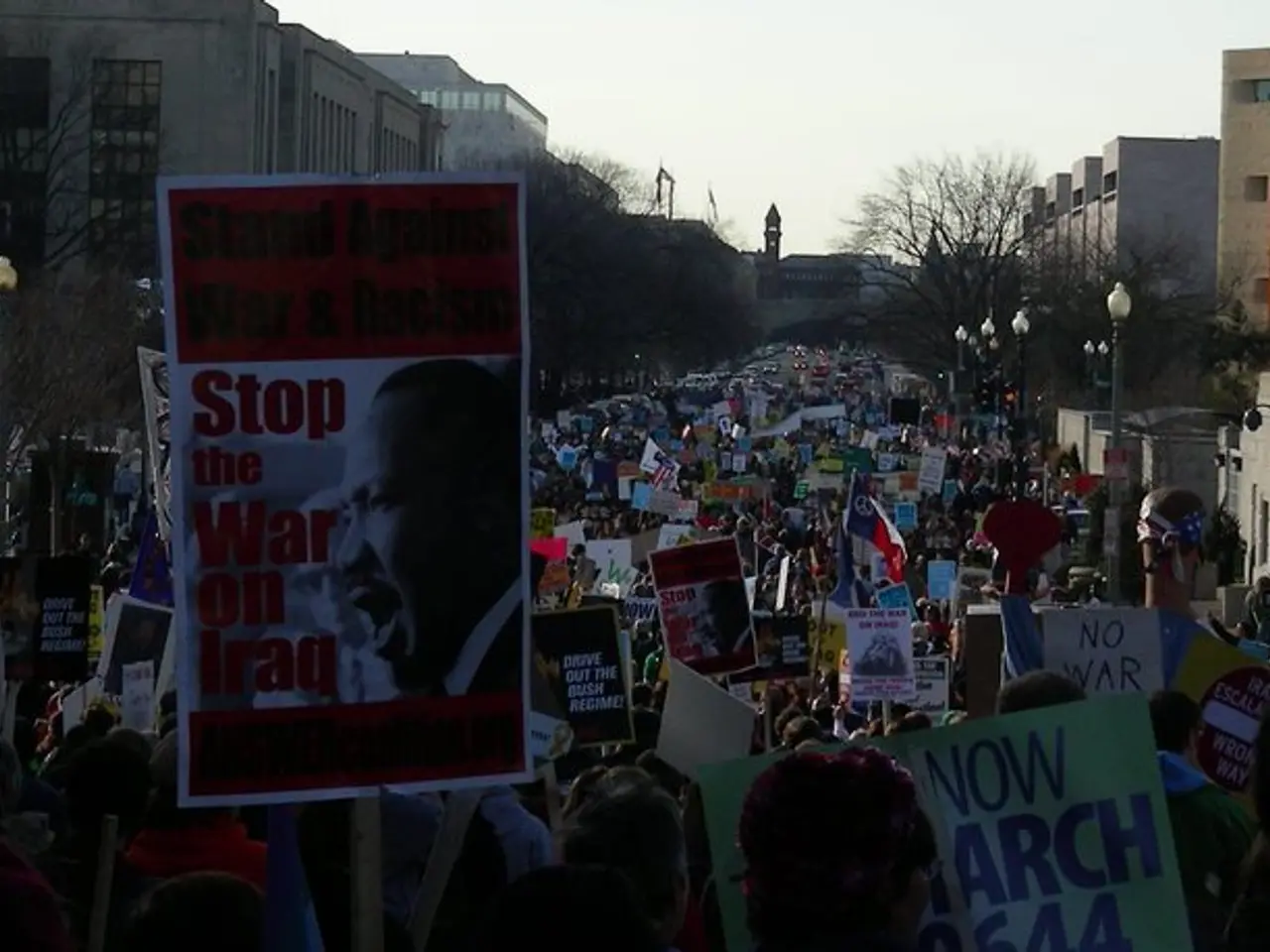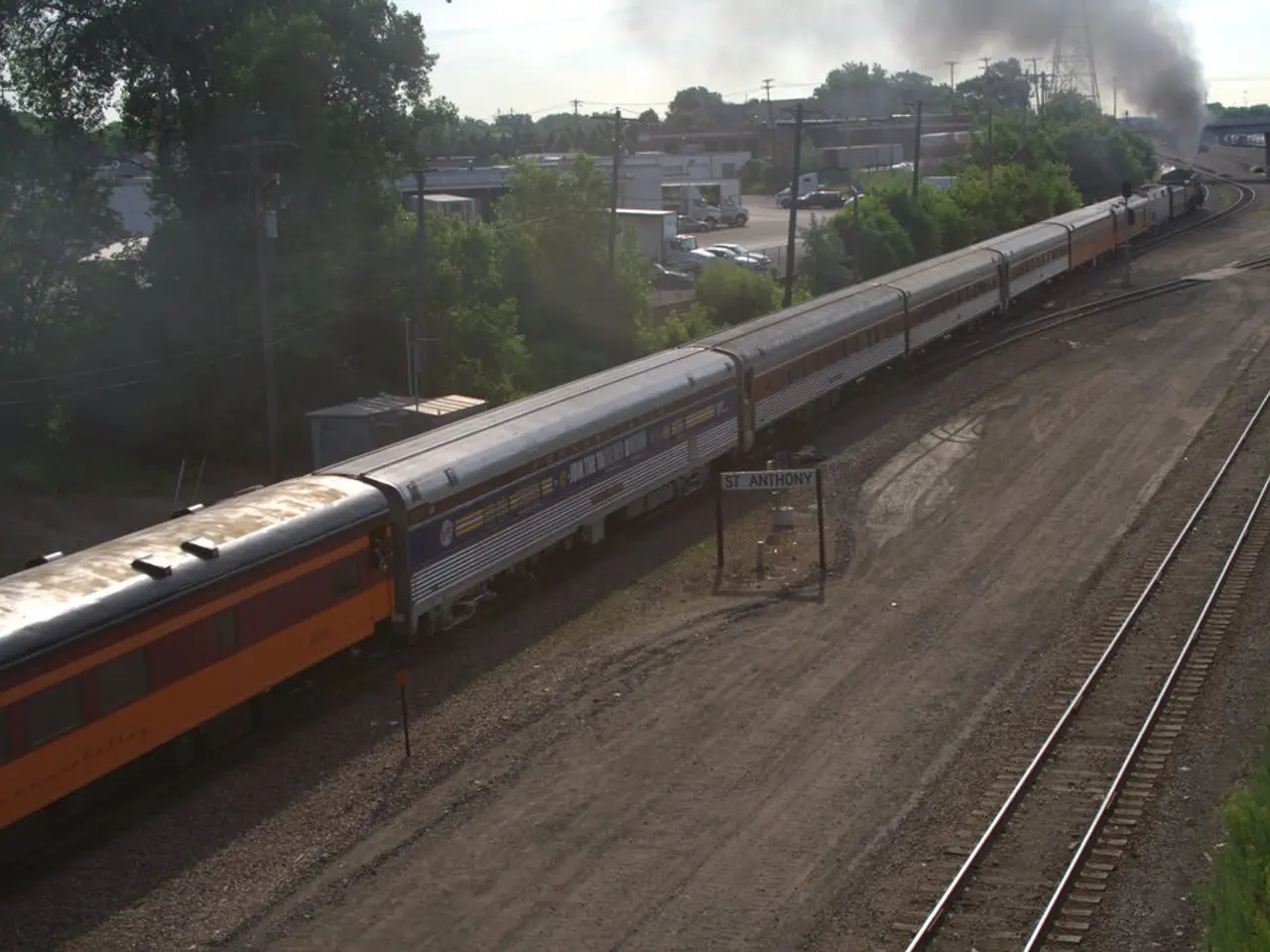Chaos and Loss: Two Dead in Violent Kenyan Protests Against the Government
Demonstrators clash with authorities, resulting in two fatalities during anti-regime demonstrations in Kenya.
Connect with us on Facebook | Twitter | Whatsapp | E-Mail | Print | Copy Link
Two protesters lost their lives due to gunshot wounds during demonstrations against the Kenyan government, hospital officials announced on Wednesday. The first casualty suffered gunshot wounds to the abdomen and died from severe bleeding, as reported by a hospital official in Matuu, approximately 100 kilometers from Nairobi's capital. Another victim succumbed to their gunshot wounds in a different hospital. Media outlets reported that police opened fire on the protesters.
The memorial marches on Wednesday, initially peaceful gatherings aiming to commemorate last year's protests, which claimed at least 60 lives, soon turned into a series of violent confrontations between protesters and police. Thousands had congregated in Nairobi's central district, among them relatives of those who perished, rallying for President William Ruto's resignation.
According to AFP reporters on the ground, clashes between protesters and law enforcement were intense. Protesters hurled stones at the police, who retaliated with tear gas and rubber bullets to manage the crowd. At least one police officer and several demonstrators were hurt during these skirmishes. Barriers were erected to block access to the city center, and government buildings were fortified with barbed wire. Reports of protests in other cities across the country emerged as well. The Kenyan government ordered radio and television stations to halt their live coverage of the protests, citing violations of the constitution.
While most Kenyan media continued live broadcasting despite the ban, human rights organization Amnesty International expressed strong disapproval of the government's actions, stating, "Suppressing the press is not the answer." Last year's Kenyan protests erupted due to the country's subpar economic condition, planned tax increases, and subsequent deaths and arrests. Discontent against President Ruto, who has been in office since 2022 and promised swift economic recovery, still runs deep across the nation.
The ongoing public discontent centers around unresolved economic grievances, police brutality, and political dissatisfaction. This year's protests were further fueled by the death of a prominent blogger, Albert Ojwang, in police custody. Six individuals, including police officers, have been charged with his murder, igniting public outrage over ongoing police violations.
An overview of the key events surrounding the protests shows that the initial protests, which took place in 2024, were spurred by planned tax hikes, but they quickly evolved into widespread demands against high taxes, poor economic conditions, and demands for Ruto's resignation. Despite the government's withdrawal of the tax proposals, public anger persisted due to the violent suppression and unexplained abductions during the crackdown. The one-year anniversary of the uprising in 2025 saw thousands of mostly young men participate in marches across the country, leading to more violent clashes with police.
International actors, including Western embassies and international observers, have been vocal in their condemnation of the excessive use of force by the Kenyan police during both the 2024 protests and the 2025 anniversary demonstrations. They have urged both protesters and police to exercise restraint in order to prevent escalation and advocate for peaceful dialogue to resolve the crisis. The violent crackdown has raised red flags internationally, leading to concerns about Kenya's human rights situation and the stability of President Ruto's government.
The Commission, amidst the turmoil of Kenyan protests, has been requested to submit a directive on the protection of workers from the risks related to exposure to ionizing radiation, as a diversion from the political unrest and violence in the nation's recent general news. The proposal for a directive on radiation protection comes in the context of crime and justice, with concerns about police brutality emerging as a significant issue in the ongoing possibly ionizing-radiation-unrelated crisis.







